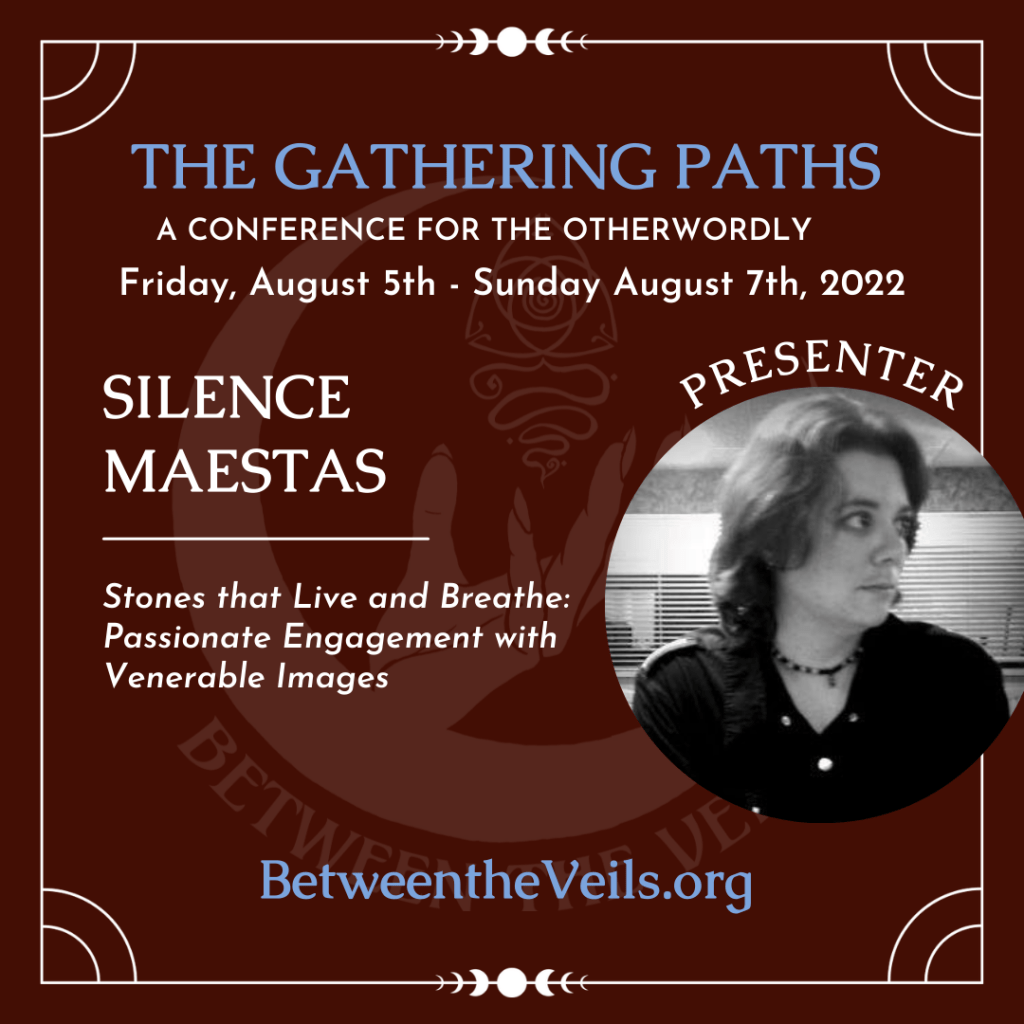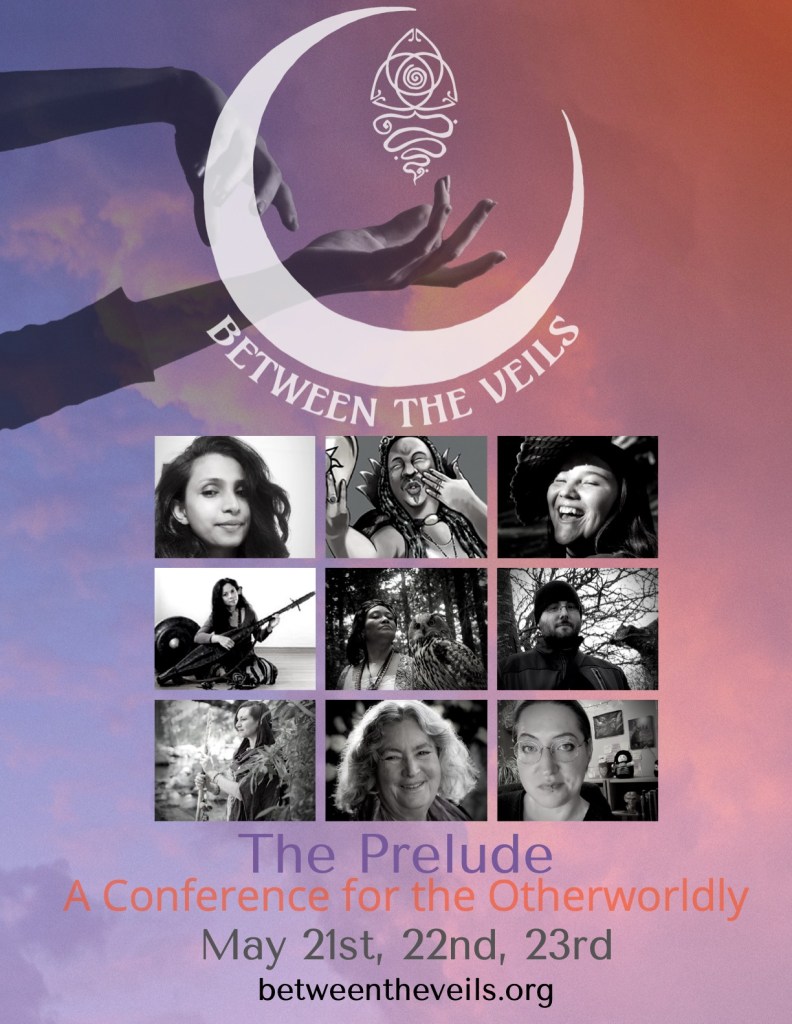One of the most necessary – and most interesting – developments in the large, expanding, and evolving experiential ecosystems that are lives lived with the Powers concerns the matter of consent. When my polytheist life began getting weird in a way that I didn’t understand, my grasp on such issues was at turns flawed, incomplete, and immature. I had the basic understanding that “yes means yes and no means no” but past that I was actually pretty unsophisticated, not to mention naive. While my specific personal upbringing and influences are to blame for some of it, some of it was the pervasive culture at the time; the mid-90s was not a spectacular time for a young adult to absorb healthy, nuanced lessons on this topic (or any number of others). And as in so many other things, one has to practice good consent over and over again before one gets any good – not to mention having any number of negative experiences to learn where those boundaries actually lie.
But this post isn’t exactly about the boundaries of consent with people, although it’s difficult to separate the topic of consent boundaries with people from consent boundaries with Powers, because we (as worshipers, devotees, beloved and besot) actively try – and expect! – the consent boundaries we exercise with people to work the same as with the Powers.
“And isn’t this reasonable?” a voice in my head asks. “Shouldn’t we ask this of our nearest, of our most trusted?”
And yes, I suppose we should.
I suppose it is entirely reasonable that we should want Them to agree, ask Them to agree to cease acting if our consent is revoked, if our enthusiasm falters, if our yes begins to fall silent. It is of course entirely reasonable that we, as human agents, ask Them to abide by a set of rules that prioritizes safety and helps promote hospitable conduct.
“And yet…” that voice whispers. (You see, I have these mock debates in my head. I imagine a lot of you do, too.)
Why, I wonder, is the human agent the one to set the terms? If, indeed, we are attempting to question a paradigm that presupposes any kind of role imbalance, why is it the human agent that automatically gets to set the terms of relating? Because, I reason, we bear the greater share of risk. Ah, so if human agents bear the greater share of risk, does this undermine our attempts to oust the paradigm of role imbalance? Furthermore, are we ignoring the matter of what risks the Powers take simply because those risks are unknown to us? Are those risks irrelevant simply because they are unknown?
“Well,” the voice says, “if the Powers wanted us to know what risks They take, They have to tell us. Communication is key to consent!”
Alright, I answer back to myself, what are the Powers consenting to? Consent must flow in all directions.
**
Certainly the Powers agree to tolerate so much by entering into relationships with any one of us – but of course, They do so willingly, out of desire for the fact of relationship. Our quirks are precious and sweet to Them, even as They gently guide us through towards little changes that help us improve our lives.
I think the Powers must agree to be blamed for many of our sorrows and problems, for the harsh treatment the world dishes out to all of us in turn. I think they must agree to be ignored, misunderstood, argued with, second-guessed, and outright misrepresented in any number of small and large ways. They also agree to persist, to continue to serve us as protectors and guides, bound by some unnamable principle that brings Them back again and again.
I don’t know why They come back. I don’t know why They stay, even after we leave.
**
I’ve been challenged somewhat, and very rightly so, on the finer points of consent in divine relationships. And the thing is, I completely agree with what others say on the topic. There should be consent – NEEDS to be consent – in these relationships. And while I realize that consent is a flowing current of negotiation, not a static line, having a fundamentally clear understanding of what we’re being asked to do within the ecosystem of our relationship(s) makes it possible to have the ongoing conversations that make enthusiastic consent possible.
But there are always going to be regions on the map of relationship that can’t be explained with this model. And this is why I always have this mental back and forth with myself. Because I always remember these exceptions, and I know that if there are these exceptions that seem to defy the model, then there must be others. And the thing is, I can’t be arrogant enough to tell the people whose experiences outright defy the current paradigm of relational understanding and context that their experiences are wrong. Their experiences aren’t flawed or bad, and they’re not doing it wrong. In some cases, they’ve done everything they can to fix the situation and the situation remains one that can’t be navigated according to the current accepted rules. Do I abandon these people simply because their experiences don’t seem to make sense based on my view of how things are – or worse, my view on how things SHOULD be?
I can’t do that. I can’t be so arrogant that I assume I’m right about an idea just because I agree with it.
Realistically, I lose nothing by believing someone’s assertion that they have relational experiences that don’t look much like the current ideal of consenting, enthusiastic devotional relationships. Maybe someone is lying, maybe someone is making it all up – maybe not. Either way, it’s impossible to prove. Besides, there are any number of cultural and traditional paradigms that might look questionable or confusing from the outside, but that are reasonable according to their interior logic. People within these living traditions have on-going conversations about the conventions of relational paradigms (and every other aspect of tradition) that outsiders are often completely unaware of. Polytheists who find themselves within any Venn territory of these traditions don’t need commentary from uninvolved outsiders; if an opinion is required, it will be very specifically and directly sought.
But, that voice says again, Shouldn’t we want to hold our Powers to a higher standard? Why should we persist in making the mistakes of the past, or of copying the patterns of interaction that seem to hold true in other traditions?
We should want something better, I agree; but what do we do if we don’t get what we want? Is our only option to walk away from a relationship, even one that is the bedrock of our lives? Are there other ways of navigating situations that do not seem to be explained adequately by conventional understandings of such matters?
**
At first, we may trust Them because They are gods. We hand our trust over like candy, handfuls at a time, overflowing, can’t get enough, how much can I give, see how much I love you? And when we are inevitably let down, because even gods must fail to live up to that inconceivably tall shining pedestal onto which They’ve been thrust by a passionate worshiper, we revoke our trust. They have failed, we are hurt, we are no longer enthusiastic.
But They persist, and this persistence is another point of critique that has been leveled at my past statements. While no doubt I would say things differently now, I still have to say: Yes. The Powers seem undeniably persistent. I don’t know why.
Were They there before relationship? Were They there before our awareness of Them? Did we, as acting human agents, wander into a cloud of relational potential that anyone might have, rather like a patch of fog on a stroll encountered only if the conditions are right? Were any of us selected and pursued, prey for unseen Hunters emerging from beyond with dreadful names and ancient signs? Were any of us selected and considered, measured for height, made over into altars bearing Name and Form? Were any of us caught, falling stars, dropped from a firmament of order no longer belonging to be caught by Opportunity – oh that Lucky hand!
Impossible to say, though we each have our stories.
Would They leave just because we asked? Would we leave just because They asked?
**
Oddly enough, some of us persist as well. Some of us, finding the temple doors closed, the lamps snuffed out, will simply wait on the doorstep. Or perhaps, growing bored with waiting like an unfed stray, will spit and curse that empty house, then wander away searching for that missing piece (“hi-dee-ho, here I go”).
We might then be accused of maladaptive emotional configurations – and while allowing for that possibility, is that going to be always the case if all parties are not human? Does human psychology apply to non-human agents? And although many people continually stress the equitable authority and agency of human and non-human agents in these devotional relationships, it seems dismissive and (dare I say) colonial to look at the vastness of human religious experience and call all passionate devotional yearnings co-dependent. None of us needs to be a saint in order to resonate with the sentiment: even if I am cast aside I will love you still.
I love because I choose to.
I love because my nature is to do so.
My nature is made over in relation to you.
And that little voice asks, At what point was this agreed to? When was any of this discussed? Did I ever have a reasonable conversation about consent and boundaries and the very rational ruination of who I assumed I was? I never practices the risk aware consensual polytheism that one might reasonably recommend. Everything was drained away, picked up, torn down, or simply tossed on the bonfire whole. And perhaps that’s not how it “should” be done, but it’s how it happened and without doubt others are going to have similar experiences.
**
I do want to see consenting devotional relationships, because so much damage has been done where consent has been lacking. I want to see consenting devotional relationships because we as human agents deserve good things, and so do the Powers we are relating to. I want to see consenting devotional relationships because I believe this furthers a culture of consent more generally.
However, I don’t want to mistake the ideal for reality. I don’t want people to feel fearful that because they haven’t set rules or parameters in their devotional relationships, that they can’t trust the Powers. I don’t want people to feel like they have to “get it right” or else everything will fall to bits and they will be somehow to blame. I don’t want people to think that relationships they perceive as “successful” automatically had really excellent boundaries baked in at the very start. I don’t want people to assume that relationships bite back or that the Powers are looking for ways to harm us.
At the same time, I also want there to be room for the exceptions, for experiences of relationship and reality that don’t fully conform to our improving ideals of consent and healthy boundary formation. I want to be able to allow people their experiences without immediately assuming those experiences need “fixing” (unless so invited, naturally). And also, I don’t want to assume that those experience ought best to be fixed to be my first inclination. I want room to be wrong, to learn from strangers, to learn from surprising experiences, to be shown the limits of my knowledge.
There has to be room for exceptions, room to be wrong, room to learn. Room for soft landings after hard falls, room to recover. Because I’ve seen too much, talked to too many people, heard too many stories, and frankly just lived too damn much to think that I have all the correct answers – not about this, and not about a lot of things, and not all of the time.
**
(Does all this sound like I’m trying to defend non-consensually in relationships? That’s not my goal. What I’m trying to do is leave room to allow for experiences that fall outside my current understanding, to leave room for my own ignorance, to hold lightly my current sense of having a correct answer, so that changing my mind is not difficult when presented with new evidence. I try to be aware of the scope of my own knowledge, and to be humble of the vastness beyond that horizon. That’s all. If someone is experiencing distress and unhappiness within their devotional relationships, then ideally the people they speak to shouldn’t just be saying “oh hey set boundaries and don’t put up with that,” because it’s not always that easy. I don’t know why, but it’s not – and that’s part of what I was trying to get at here. It’s not just a matter of “oh I love Them” or “I tried banishing Them or whatever and They didn’t leave.” There are sometimes situations that don’t seem to conform to whatever current paradigm of relationship is currently in use to explain such matters (and I’ve lived long enough to see multiple paradigms be in use). So I guess I want to encourage people to be a little more gentle with themselves and with others; it’s confusing out there and sometimes less simple than just a matter of setting good boundaries, and less simple than deities always wanting to hurt us, and less simple than anyone madly in love with the divine being codependent, or any other statement that is assumed to always hold true. So yeah. I guess that’s basically what this long post was about.)




